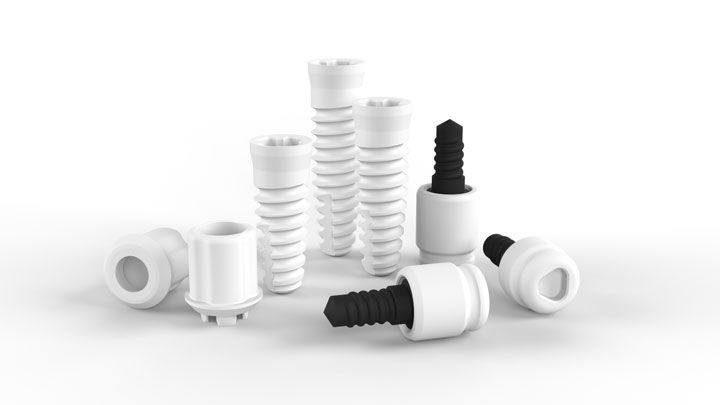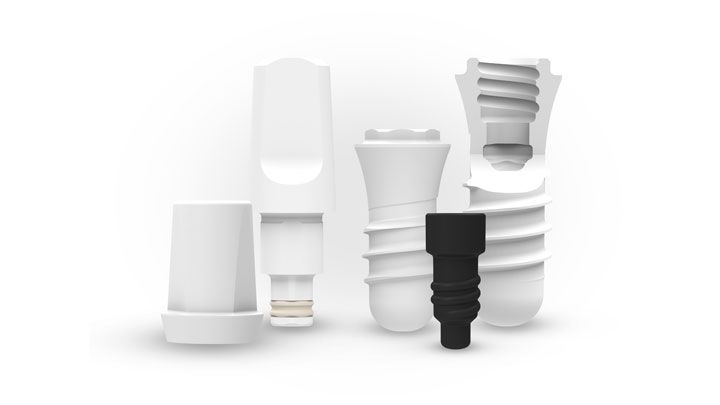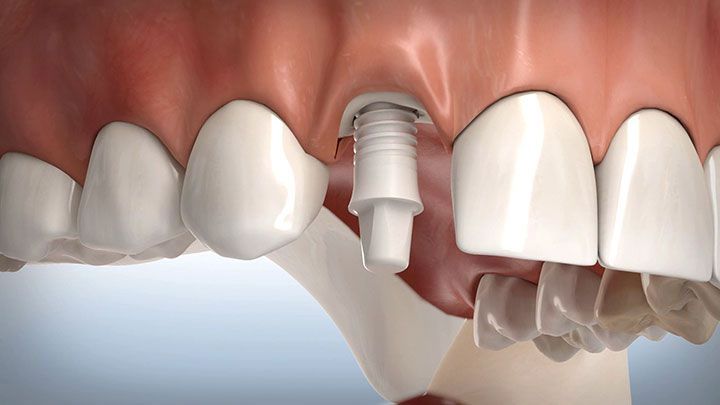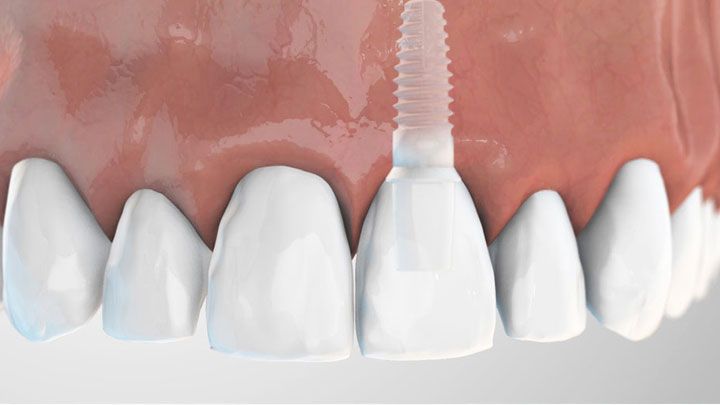-
Dental surgery
Ceramic implants
Ceramic implants
Implants offer an excellent opportunity to restore chewing function and esthetics after tooth loss and thus contribute to an unimpaired quality of life. Titanium implants have been successfully used here for decades. People rarely react sensitively to metallic components in the oral cavity, which may have a negative effect on the entire organism. Some patients feel uncomfortable with the idea of a titanium implant and for this reason want a ceramic restoration. Ceramic implants made of zirconium oxide are very compatible and 100 percent biocompatible.
In addition to particularly good bone healing, ceramic implants are also characterized by excellent soft tissue bonding due to their special surface and material properties. Since the surface structure of ceramic implants offers bacteria and plaque fewer opportunities to adhere, the risk of future gingivitis around the implants, known as peri-implantitis, is also lower than with implants made of titanium. Another advantage of ceramic implants is their optimal esthetics. Titanium implants are gray and not translucent. Since they are hidden in the jawbone, this is usually not a problem. As a result of receding gums, or even in the case of very fine gums, the dark implant margin may become visible. Especially in the esthetically important anterior region, this may result in esthetic impairment. This risk does not exist with ceramic implants.
In order to additionally improve the healing of bone and soft tissue in the area of the implants, we use the PRF procedure as part of implant surgery. In addition to better healing, autologous fibrin therapy results in less postoperative pain, less swelling, and an even lower risk of infection.
Implantation
Step 1
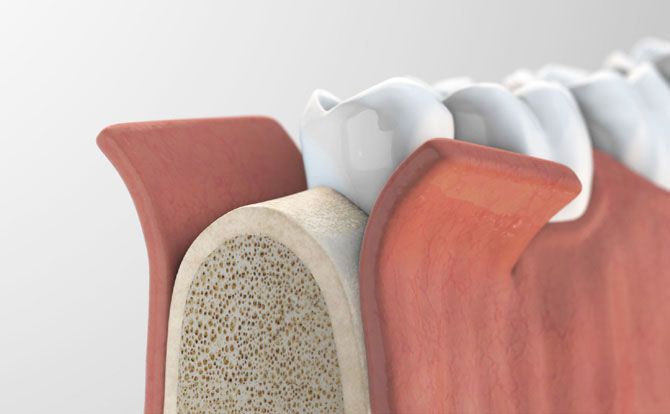
Step 2
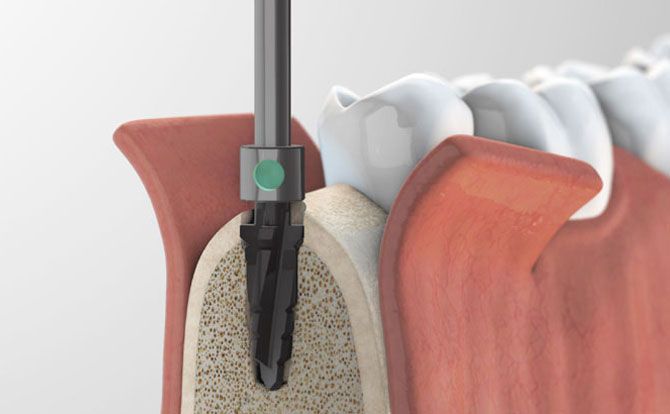
Step 3
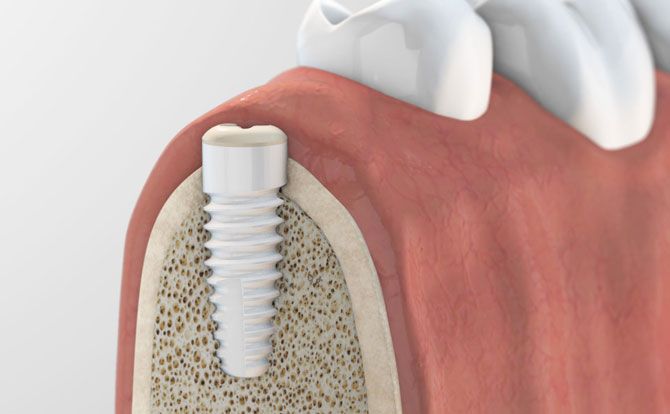
Healing
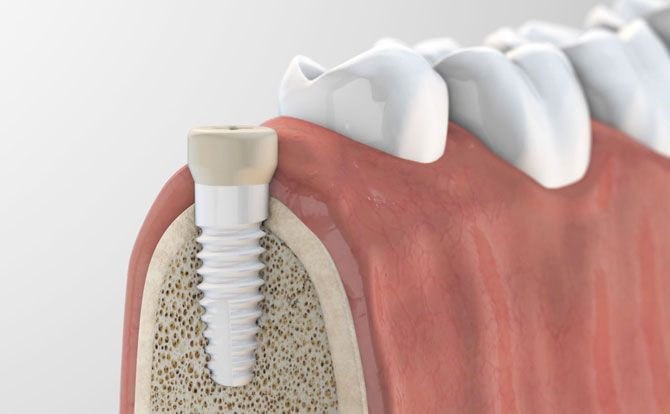
Applications
Single tooth restoration
with one implant
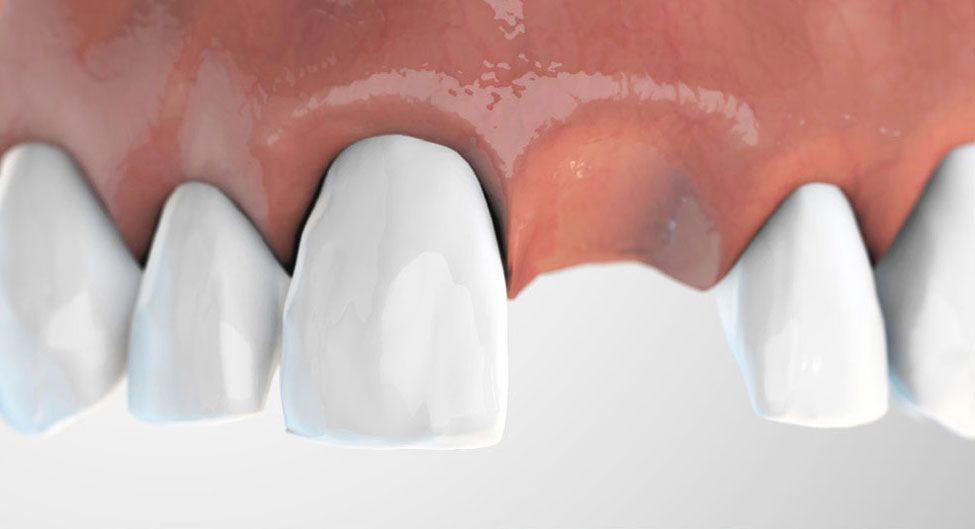

Bridge with
two implants
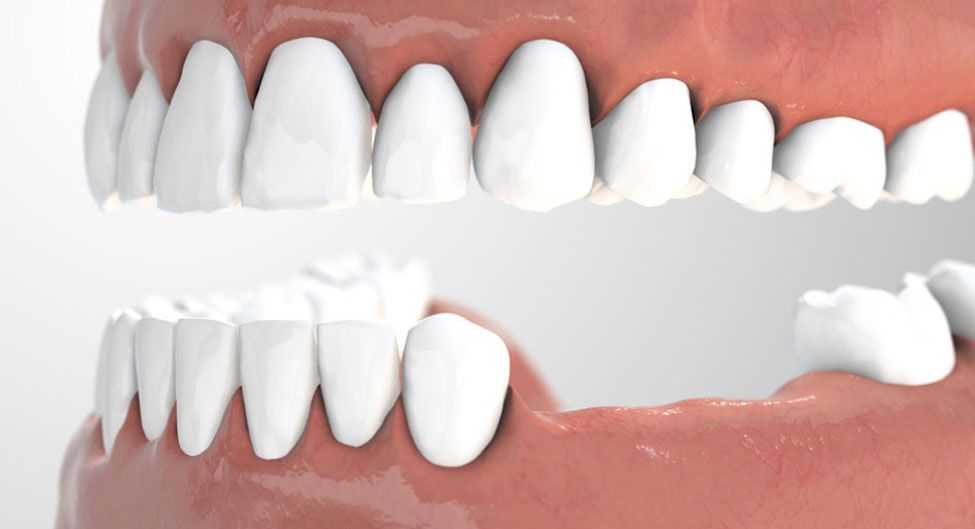

Four single
implants

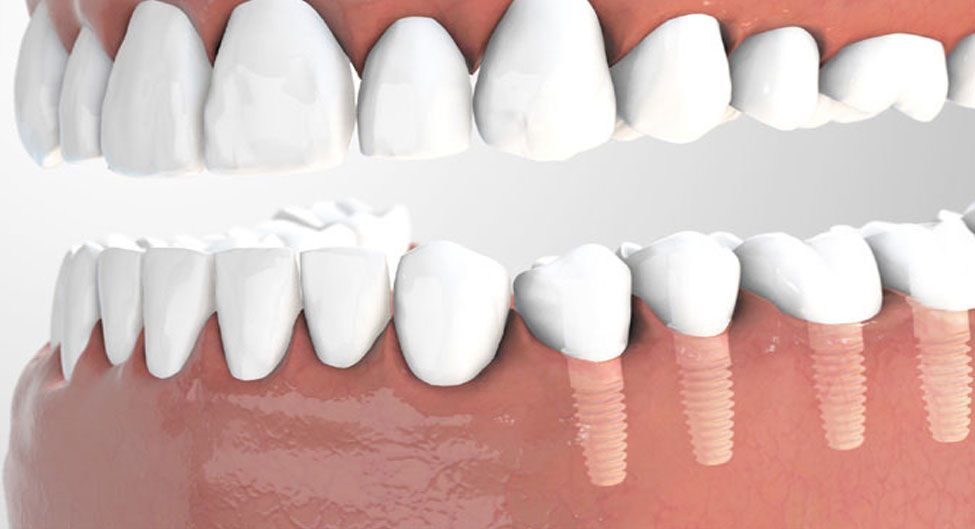
Removable
dental prosthesis
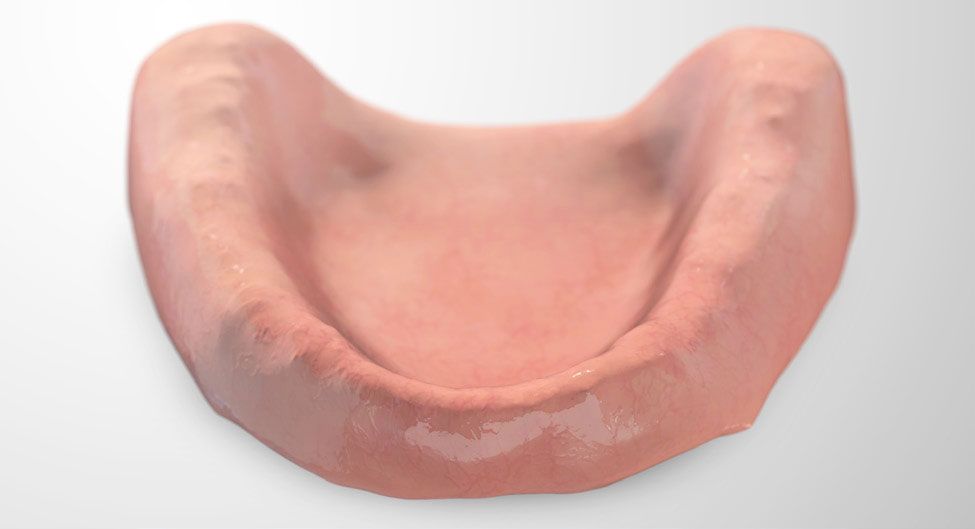

Vitamin D
A sufficient supply of vitamin D3 is particularly important for our health. Among other things, vitamin D3 is necessary for undisturbed bone healing, strengthens the immune system and supports the maintenance of healthy bones and teeth.
In addition to an anti-inflammatory effect, the frequency of allergic reactions is reduced. In the context of surgical procedures, a good vitamin D3 level thus supports optimal healing and reduces the risk of infections and other complications.
Most people have vitamin D3 levels that are too low. Deficiency symptoms such as fatigue, gingivitis, susceptibility to infections or osteoporosis can be the result. In addition, the risk of wound healing disorders and other complications increases during surgical procedures.
To achieve optimal healing after your surgical procedure, we therefore support regeneration by substituting vitamin D3. We will recommend an appropriate preparation to you in the explanatory consultation before your implantation.
This might also be of interest to you
Dr. med. Sven Heinrich
Specialist for oral and maxillofacial surgery
plastic and aesthetic operations
– Focus of activities: implantology –
Address:
Friedrichstraße 63
(Entrance Mohrenstraße 17)
10117 Berlin
Opening hours
Mo. to Thu.:
08:00 – 18:00 o’clock
Friday by arrangement
Contact us
Phone: +49 (0) 30 / 84 52 48 88
Email: post@dr-heinrich.berlin
Appointment: arrange here



